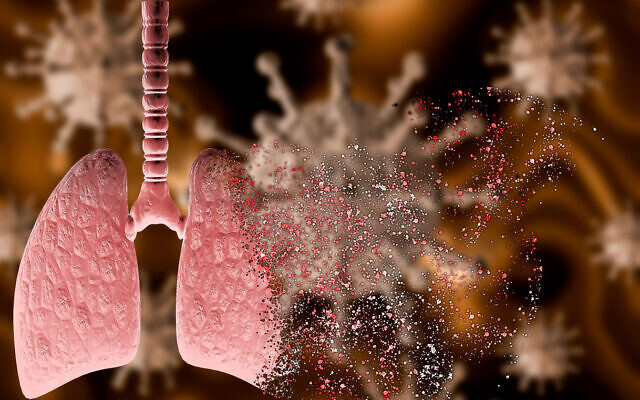
Israeli researchers say they have taken a stride forward in efforts to “understand the enemy” in the hope of subduing it, after identifying four previously unknown proteins that people produce as a result of coronavirus infection.
They have also identified 19 peptides, short chains of amino acids, that had not previously been identified in the bodies of infected people.
“We now know the enemy better,” Noam Stern-Ginossar, a scientist behind the peer-reviewed study just published in Nature, told The Times of Israel.
“In the fight against the virus, we’re looking to identify every change that is caused by the virus, every aspect of the immune response, because targeting it with drugs could help to stop its impact,” she said.
“We don’t yet know what the newly identified proteins and peptides do, but if we start to understand, they could potentially be new targets for drugs,” Stern-Ginossar said.
“The better we understand the processes that occur in the cells when they get infected, the better our chances of eliminating the virus.”
Stern-Ginossar, of the Weizmann’s Institute’s Molecular Genetics Department, together with a research group led by Nir Paran and Tomer Israely at the Israel Institute for Biological Research, infected human cells with coronavirus in a lab, in order to analyze exactly what proteins the virus prompts them to produce.
Rivka Abulafia-Lapid, a Hadassah Medical Center virologist who is unconnected to the study, told The Times of Israel that she considers it “a very good paper, excellent in scientific terms.”
Stern-Ginossar, along with her PhD students Yaara Finkel and Orel Mizrahi, hoped to find a new protein or two, but were stunned by their discovery.
“We found four completely new proteins, as well as 19 peptides, which are essentially small proteins, which are different versions of proteins that had already been identified,” she said.
It is well known that when SARS-CoV-2 gets into a patient’s body, it prompts the body to produce proteins that help the virus to replicate, thrive, and spread through the body.
Until now there were thought to be 26 such proteins; the new research puts the number at 30, plus the 19 peptides, and Stern-Ginossar said she believes this is a comprehensive picture.
Some of the proteins cause the immune system havoc that characterizes COVID-19, which is why many scientists believe that understanding and disarming them could prove central to drug development.
“The virus is like a recipe that tells the body what to make, getting it to make viral proteins, and these proteins replicate the virus in order to infect new cells,” explained Stern-Ginossar.
“Since January we have known the genetic sequence for the coronavirus. Now we have a much clearer picture of what proteins the virus is making once it infects the patients’ cells,” she said.
